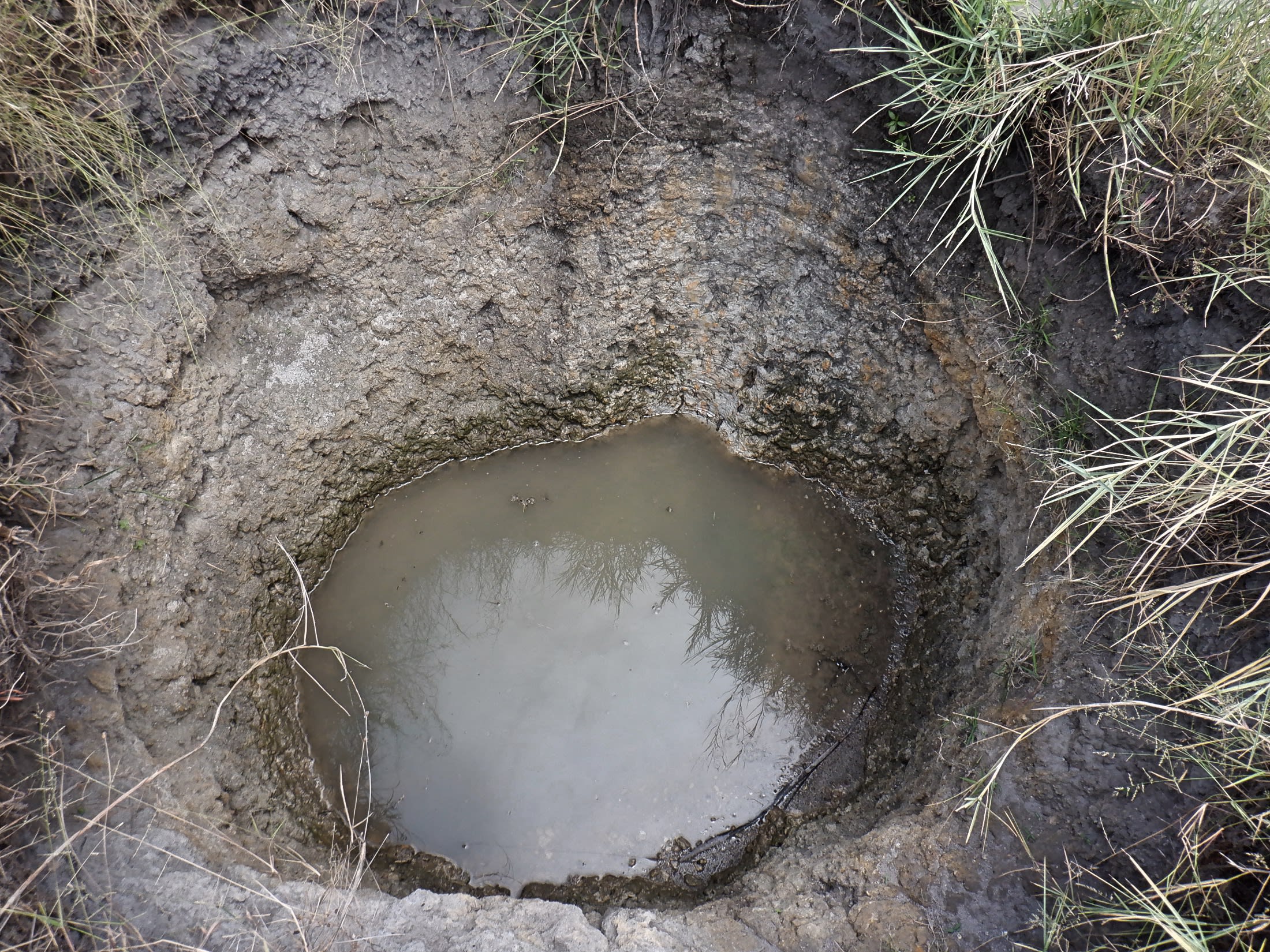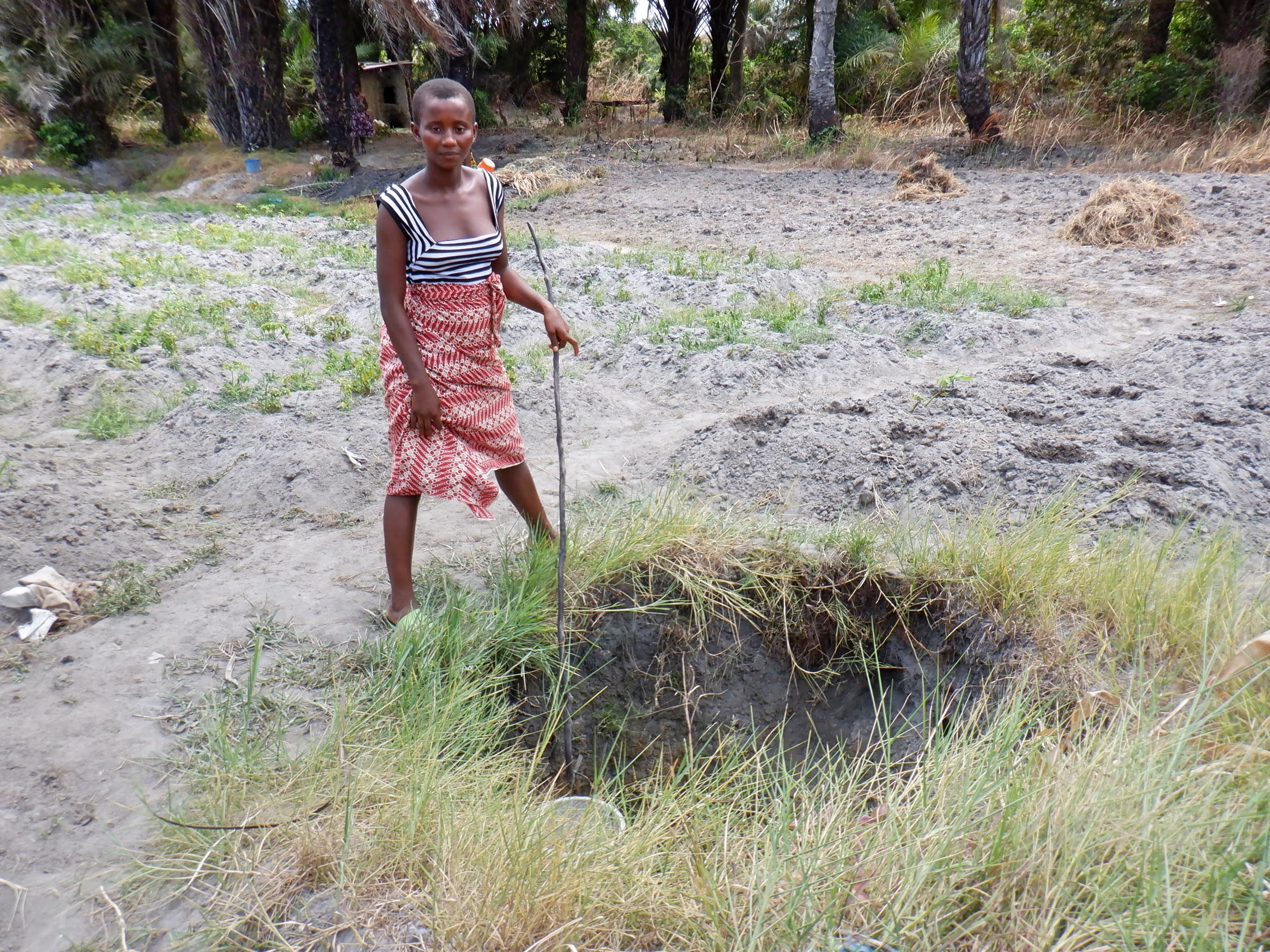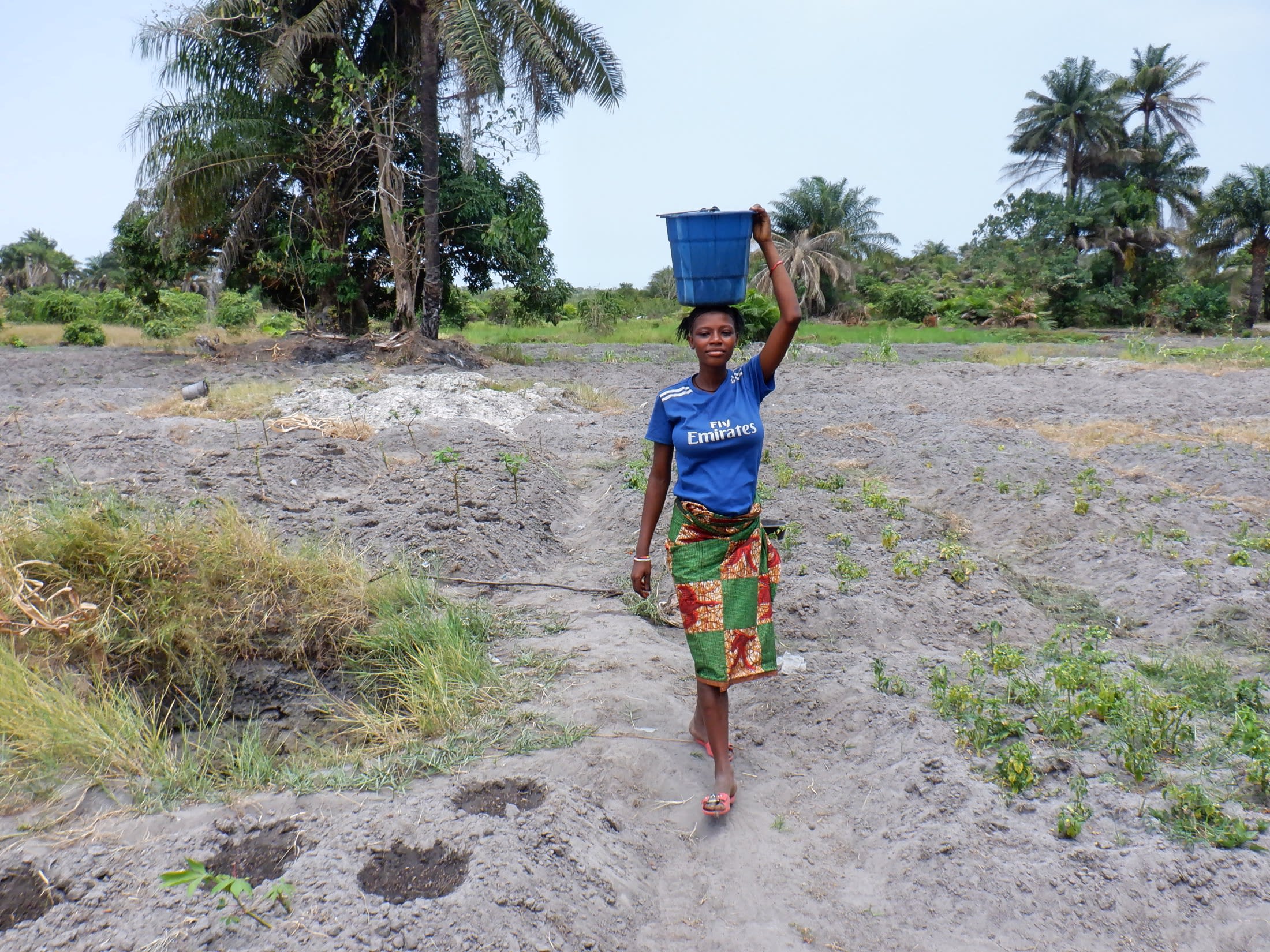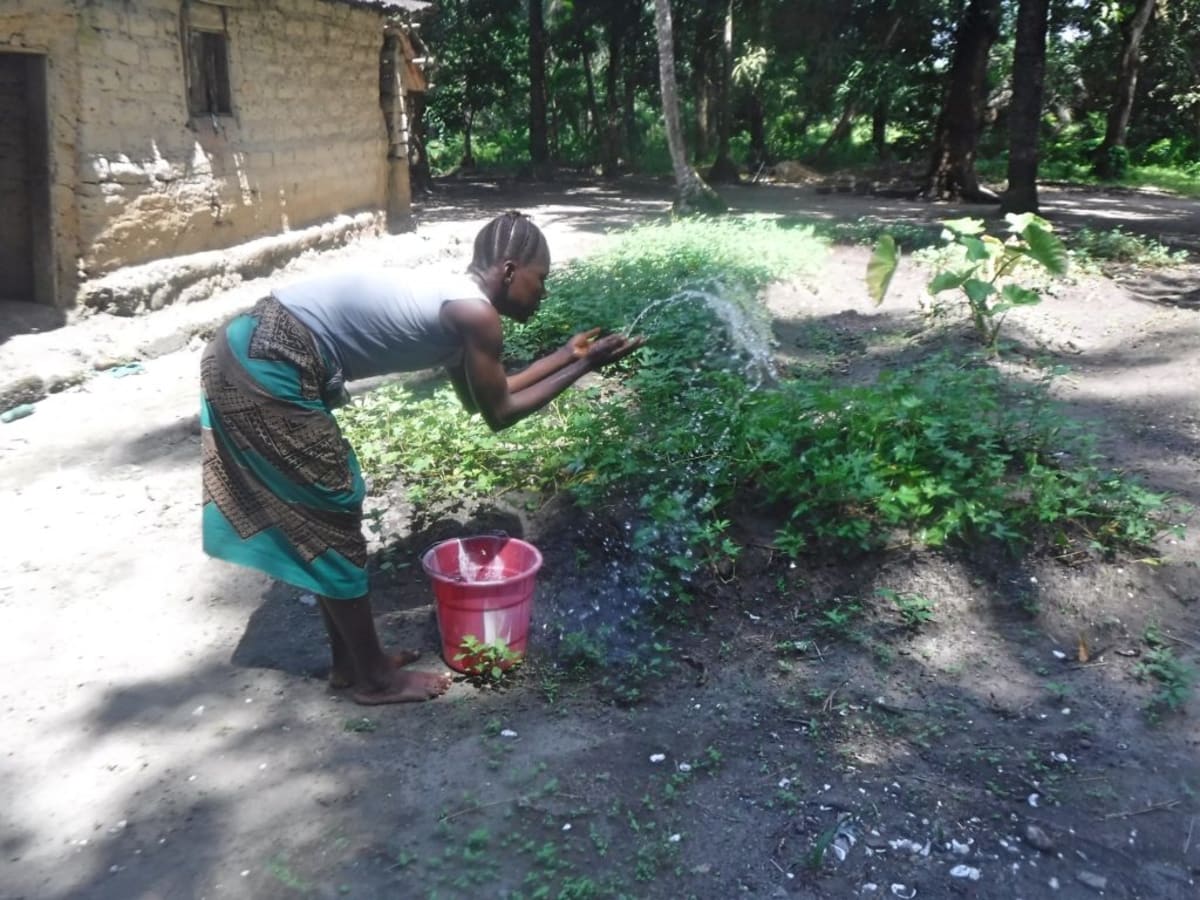To get clean water in Madina, people have to wake up as early as they can to try and beat everyone else to the community well. But no matter how early the 131 people living here wake up, they may find that there are still long lines of people waiting to fetch water for their daily activities. By the time they reach the front of the line, the well may have run out of water.
So, rather than contend with this ordeal day after day, some people opt to collect questionable water from a hand-dug hole in the local swamp (pictured below).
 "[A] major challenge with the well is that it normally gets faulty," said 23-year-old food trader Mabinty Sillah.
"[A] major challenge with the well is that it normally gets faulty," said 23-year-old food trader Mabinty Sillah.
"Whenever this happens, the only alternative source I must fetch water [from] is the swamp. The swamp is a distance away from my house. Going to the swamp to fetch water makes me exhausted easily because of the walking distance. Imagine as a mother, I must prepare food for my husband every day. My husband does not care. All he wants to know is that water should be available at home at all times, and the food must be set on the table."
Out of the 131 people in Madina, very few have money to spare to purchase water. The water scarcity means that people go to work and school late, forego necessary hygiene practices, and even lose money when their professions require water.
"Failing to wake up early will hinder me from fetching water," said 17-year-old Rugiatu C (shown below fetching water at the swamp well).

"There are times I would wake up very early in the morning, yet I will still meet people at the well. Waiting for them to finish will take me some time. Even if there are twenty containers at the well, I must wait 'til they finish fetching water. All this affects my time of schooling. The teachers in my school always notice that I am not punctual in school. I have tried many times to manage my time well, just for me to be punctual in school, but to no avail. The underlying cause is the high competition that involves in fetching water from the well."
"The present water situation in this community is really affecting me," said Mabinty (shown in the picture below).

"I use a lot of water on [a] daily basis to cook, prepare the fishball I usually sell, and launder [clothes]. All these tasks would not be completed without sufficient water. Most times when I go to the main source to fetch water, the well will be filled with a lot of people, especially in the morning. That is the hour I need water the most to prepare the fishballs and bread I am selling. The long waiting time at the well will hinder the preparation of the food I sell. This has made me lose customers."
"I will be grateful if this community will have a well that is always functional," Mabinty said. "I believe this will lessen all the water constraints I am facing every day."
Here’s what we’re going to do about it:
Well Rehabilitation
The well marked for this overhaul is dry for a few months every year and needs major work to supply adequate, clean water to the community year round. The pump will be removed, and a hand auger will be lowered inside and powered by a drill team. This hand auger will allow the team to drill several meters deeper to hit a sufficient water column that will ensure the well supplies water throughout all seasons.
As the team drills, casing will be installed, transforming the bottom of this hand-dug well into a borehole. PVC piping will connect this lower system directly to the pump, a construction that we know will also improve the quality of water.
Once this plan is implemented, everyone within the community will have access to safe drinking water in both quality and quantity, even through the dry months.
Hygiene and Sanitation Training
There will be hygiene and sanitation training sessions offered for three days in a row.
After our visit, the hygiene and sanitation trainer decided it would be best to teach community members how to build a tippy tap (a hand-washing station built with a jerrycan, string, and sticks). They will use these tippy taps for handwashing demonstrations, and will also teach about other tools like dish racks and the importance of properly penning in animals.
These trainings will also strengthen the water user committee that manages and maintains this well. They enforce proper behavior and report to us whenever they need our help solving a serious problem, like a pump breakdown.

 Borehole Well and Hand Pump
Borehole Well and Hand Pump






























